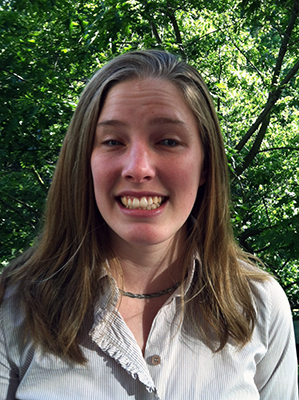Cindy

I am a second year Ph.D. student in the Human Centered Design and Engineering department at the University of Washington. I am grateful to be a National Science Foundation Graduate Research Fellow. My research focuses on increasing the accessibility of the design process. It is grounded in disability studies and social justice concerns of increasing the voices of people with disabilities in academic publications, in positions of power on design teams, and in the design process itself. I have thus far documented access breakdowns while student designers prototyped mobile apps with vision-impaired participants. I have also explored how people with upper limb loss interface with prostheses and other objects to perform identity and navigate perceived social norms as 3-D printing presents opportunities for people to have more agency in the design of their prostheses. I look forward to developing interventions such as accessible design and reflection activities to challenge designers to forefront people with disabilities and social justice issues in their practices and design outcomes.
My academic career didn’t start with anywhere near engineering. My bachelor’s degree is in psychology with minors in African American studies and women’s studies. After my undergraduate work, I had every intention of pursuing a Ph.D. in clinical psychology. When I was accepted to programs but didn’t receive funding, I decided to get some practical work experience to learn what I actually want to do.
I moved to Seattle and started looking for work. I happened to participate in a user study for a graduate student in the University of Washington Computer Science department. While there, I happened to mention my undergraduate research experience working in a psychology lab. Before I knew it, I was hired to manage user studies for computer science Ph.D. students and joined an incredibly supportive research lab. Through this experience, I realized that I did want a Ph.D. and that I could combine my passions for people, technology design, and social justice to enter an engineering field where jobs abound. On paper, this job allowed me opportunities to co-author papers and strengthen my graduate school application, but, more than anything, I gained mentors. My colleagues valued my perspective and the collaborative atmosphere and joint interest in access barriers meant that the students wanted to create an accessible work environment. This inclusive experience gave me more confidence to advocate for myself and showed me that I do bring talent and perspective to research, design, and engineering.
Now that I am a Ph.D. student, I continue to rely on mentors to grow as an academic and an engineer. I constantly seek mentors around campus who have disabilities and who use disability studies in their work. I also seek out blind engineers and mentor undergraduate students in my field. I am excited to prioritize impact in my work, and I believe it is a direct result of the people who have believed in me and taken time to assist me, even when I have a hundred questions. Now that I have lived in Seattle for four years, I am constantly reaching out as a mentor to blind people and graduate students as they move here. The community created by the connections I have made has deeply impacted my priorities as a researcher to constantly think about how I can empower and support other people to do something they did not believe possible.